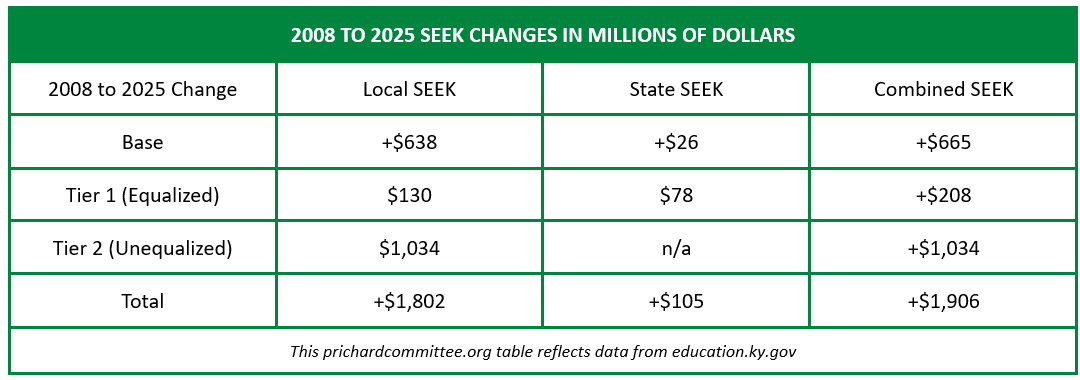Exemption from legal requirements is regularly listed as a key way that charter schools can be different, usually followed by quick disclaimers that some rules will still apply. This post will offer some likely specifics on that.
Here are some important examples of Kentucky rules that charter schools probably will not have to follow:
- Primary talent pool identification and services for K-3 students (gifted and talented services for older students have to be described in the charter school application)
- Response to intervention systems for K-3 students
- Individual learning plans for grade 6-12 students
- Accelerated learning for students with identified deficiencies or strengths based on state assessments
- Advanced coursework options (Advanced Placement, International Baccalaureate, dual enrollment, or dual credit)
- Class size caps
- State teacher evaluation rules, continuing contracts (tenure), and single salary schedule
- 2% financial contingency reserves
Charter schools will also be “exempt from administrative regulations governing public schools for purposes of zoning and local land use regulation.” That exemption is direct from state law, and it seems likely to mean that a charter school can select space in any building that meets health and safety rules, without having to fit within existing rules on where homes, businesses, factories, and other uses are allowed.
These kinds of exemptions leave many other rules in place. Legally, “the public charter school shall adhere to the same health, safety, civil rights, and disability rights requirements as are applied to all public schools,” as well as other statutes that specifically say they apply to charter schools. Here are my starting lists of rules that look to me like they will definitely apply.



That’s not a minor set of obligations!
Reasons and procedures for suspensions, expulsions, and services after expulsionmay well be the most important item on those lists. I put them under health and safety because the rules were substantially revised in 1998 as part of the School Safety Act. I also put them under civil and disability rights because education is a fundamental right in Kentucky. That isn’t true in all states, but it’s true here under Article 183 of our Constitution.
Suspension, expulsion and services after expulsion also top my list of legal requirements that should get further attention to work effectively for charter school students and leaders. Under current law, expulsion from public schools is a decision taken by the elected local board of education after a formal hearing. The board also has the obligation to provide services to students after expulsion (unless doing would be dangerous). How will those steps work for a charter school? The law should be clear, but this part of state law was written with no plan for charter schools to exist. Thoughtful amendments ought to be built, with veteran administrators, board members, and student advocates as key players in thinking through consistent and complete approaches.
A concluding note: Here’s an over-arching point about why there are substantial lists of rules to consider: education is a huge undertaking. Of Kentucky’s 4.5 million people, roughly 1 in 6 is actively engaged in that one huge effort: more than 780 thousand students and nearly 70 thousand teachers and other school staff members. Also, the work is profoundly important work: the development of young humans who will be the main builders of our shared future. No one should expect the rules to fit on a cocktail napkin.
Legal Sources: KRS 160.1592 provides the overall exemption and the specific zoning and land use exemption. KRS 160.1592 provides charter schools’ overall exemption, and most of the other requirements. KRS 161.141 specifies that charter school employees will participate in state retirement systems. The other explicit requirements for charter school operation are found in 2022’s Senate Bill 1 (concept and texts), in KRS 158.4416 trauma), and in KRS 158.038 (hotline numbers).
Series Links:
Charter schools: taking on the questions (Introduction)
2. What student results are charter schools expected to deliver?
3. Which school laws do charter schools have to follow?
4. How can students be admitted to charter schools?
5. Who can authorize charter schools?
6. Who can apply to start a charter school?
7. How can charter schools be closed if they do not deliver?












